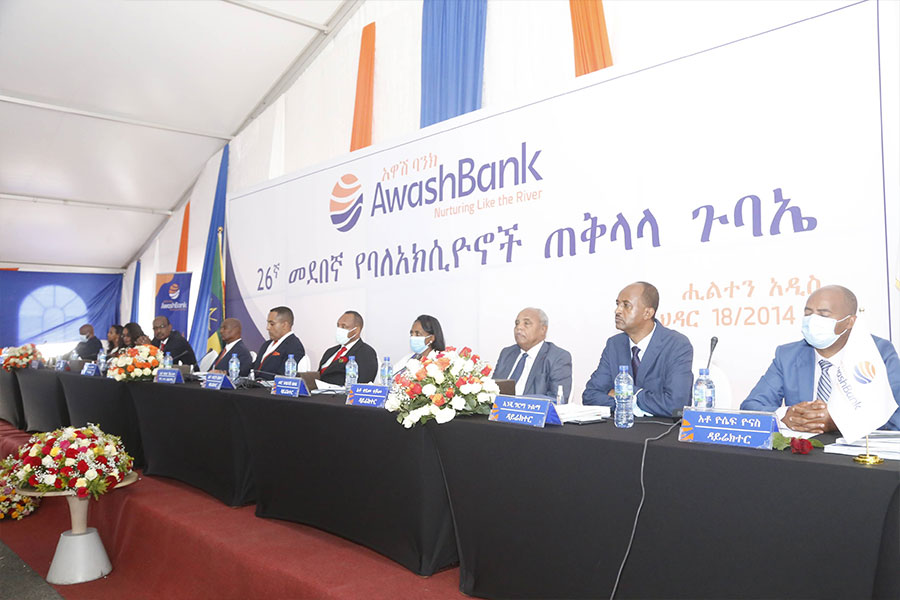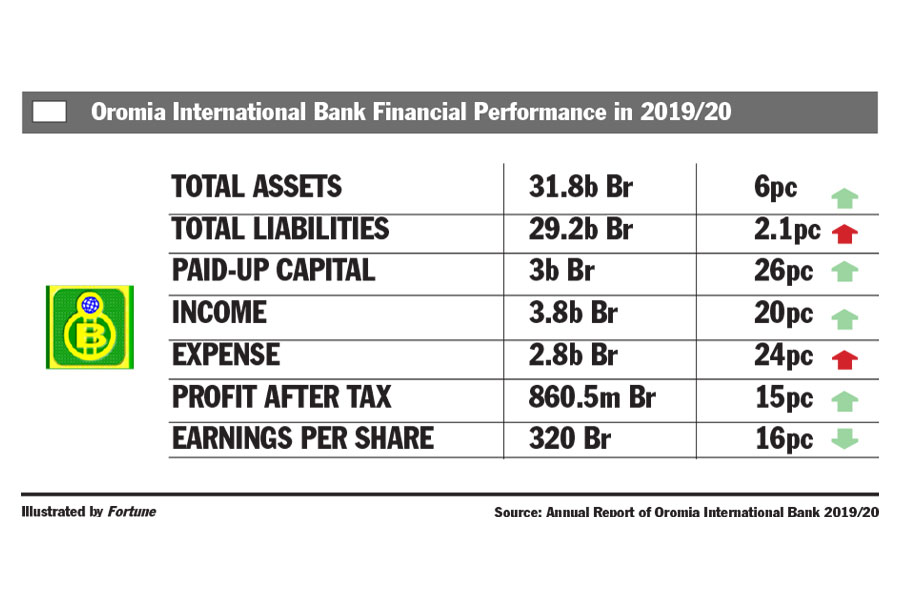
Jul 20 , 2019
By FASIKA TADESSE ( FORTUNE STAFF WRITER )
 The old directive used to compel the banks to nominate presidents that have a decade of experience in the industry.
The old directive used to compel the banks to nominate presidents that have a decade of experience in the industry. The central bank has tightened its grip on requirements and qualifications of nominees to the board of directors and chief executive officers of commercial banks.
With its newly issued directive, the National Bank of Ethiopia has increased the working experience of nominated chief executive officers in the banking industry to 12 years, of which five should be as a senior executive officer. The old directive used to compel the banks to nominate presidents that have a decade of experience in the industry.
Issued on July 18, 2019, under the signature of Yinager Dessie (PhD), governor of the National Bank of Ethiopia, the directive requires all board directors of banks to hold a first degree. In the old directive, it was enough if three-fourths of the directors have a BA degree, while the remaining graduated from a general secondary school.
“It is a necessity to enhance the effectiveness and soundness of governance of the banks,” reads the directive. “There is a need to ensure that the National Bank of Ethiopia exercises its responsibilities to assess whether banks are soundly and prudently managed and directed.”
The central bank has also raised the working experience of anyone nominated as a senior executive officer, requiring senior executives to have a decade of experience, up from eight years. Proposed senior executive officers should also have worked as department managers for at least four years.
With the previous directive issued seven years ago, the appointment of chief internal auditor, chief risk and compliance officers, who are directly reporting to the board of directors, did not require approval from the central bank. However, the new directive mandates appointees get approval from the regulatory bank.
The central bank will approve the appointment of a chief internal auditor and chief risk and compliance officers if they only have a minimum of eight years’ experience in banking, three of which must be in a managerial position.
Team leader and division heads are also classified under the managerial position by the new directive.
The composition of boards of directors also faces a new strict procedure from the central bank, which mandates core competence as a major baseline during the nomination of directors.
The directors of any bank should also be composed of a mixture of educational backgrounds such as banking, finance, accounting, management, economics, legal, business administration, auditing, information technology and investment management.
While submitting an application for nominated directors, chief executive officers and senior executive officers, the banks have to submit a copy of the organisational structure of the respective bank approved by the board, according to the new law. The copy of the signed appointment of the board of directors should also be attached to the application.
The other new procedure introduced by the new directive is the central bank's approval of acting chief executive officer appointments. In the previous directive, the banks were not forced to get approval from NBE when appointing acting CEOs. To get the acting CEO's appointment approval, the banks now have to submit the application within three days of the nomination.
The new directive came onto the scene after the industry has seen a 23.6pc spike in deposit mobilisation in the 2017/18 fiscal year and disbursement of 115.4 billion Br in new loans, a 5.9pc growth from the preceding year.
In the reporting period, the 17 operational private and state-owned commercial banks opened 500 new branches, raising the total number to 4,757. The total capital of the banking industry has also increased by 10pc, reaching 85.8 billion Br by the end of June 2018.
Since 2012, no new bank has joined the industry, however, recently new initiatives were started to organise new banks. Gadaa Bank, which started selling shares a couple of months ago, and Amhara Bank, which recently got an approval from the central bank to make an initial public offering, are among them. Four banks, which exclusively engage in interest-free banking, have also already started selling shares.
PUBLISHED ON
Jul 20,2019 [ VOL
20 , NO
1003]

Radar | Sep 17,2022

Fortune News | Mar 06,2021

Fortune News | Dec 11,2021


Fortune News | Jul 25,2020

Fortune News | Dec 01,2024

Fortune News | Aug 12,2021

Fortune News | Jan 09,2021

Radar | Sep 10,2022

Fortune News | Nov 30,2019

Dec 22 , 2024 . By TIZITA SHEWAFERAW
Charged with transforming colossal state-owned enterprises into modern and competitiv...

Aug 18 , 2024 . By AKSAH ITALO
Although predictable Yonas Zerihun's job in the ride-hailing service is not immune to...

Jul 28 , 2024 . By TIZITA SHEWAFERAW
Unhabitual, perhaps too many, Samuel Gebreyohannes, 38, used to occasionally enjoy a couple of beers at breakfast. However, he recently swit...

Jul 13 , 2024 . By AKSAH ITALO
Investors who rely on tractors, trucks, and field vehicles for commuting, transporting commodities, and f...

Oct 11 , 2025
Ladislas Farago, a roving Associated Press (AP) correspondent, arrived in Ethiopia in...

Oct 4 , 2025
Eyob Tekalegn (PhD) had been in the Governor's chair for only weeks when, on Septembe...

Sep 27 , 2025
Four years into an experiment with “shock therapy” in education, the national moo...

Sep 20 , 2025
Getachew Reda's return to the national stage was always going to stir attention. Once...